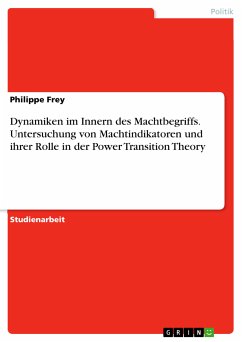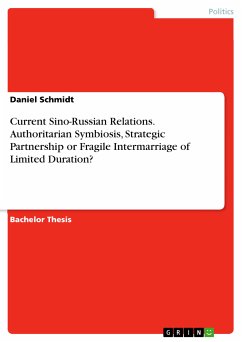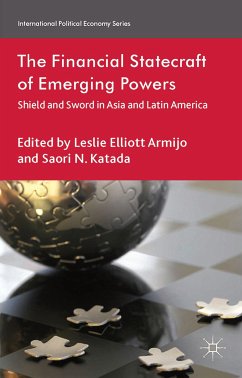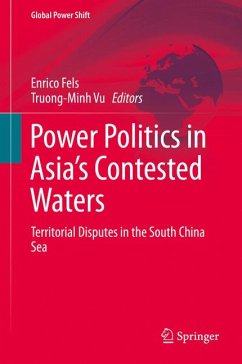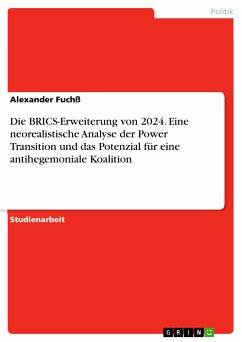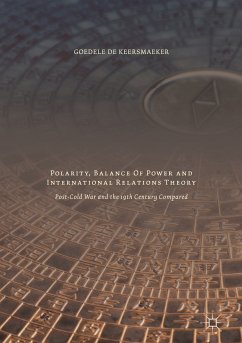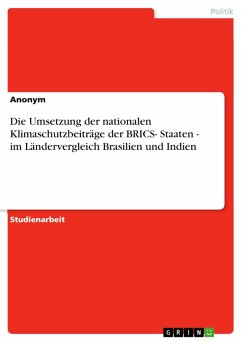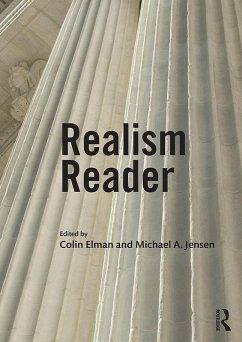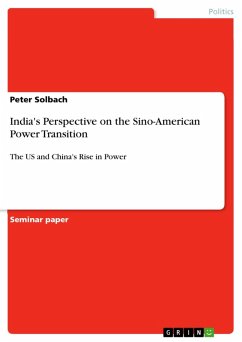
India's Perspective on the Sino-American Power Transition (eBook, PDF)
The US and China's Rise in Power
Versandkostenfrei!
Sofort per Download lieferbar
Statt: 16,99 €**
14,99 €
inkl. MwSt. und vom Verlag festgesetzt.
**Preis der gedruckten Ausgabe (Broschiertes Buch)
Alle Infos zum eBook verschenkenWeitere Ausgaben:

PAYBACK Punkte
0 °P sammeln!
Seminar paper from the year 2019 in the subject Politics - Topic: Globalization, Political Economics, grade: 1.0, University of Cologne (Seminar für Politische Wissenschaft - Lehrstuhl für Internationale Politik und Außenpolitik), course: Einführung in die Machtübergangstheorie, language: English, abstract: In this paper, India's stance on the Sino-American power transition will be examined. The questions that arise out of this task and will be answered are: How satisfied is India with the status-quo of the international system and how will China's rise in power change India's overall sta...
Seminar paper from the year 2019 in the subject Politics - Topic: Globalization, Political Economics, grade: 1.0, University of Cologne (Seminar für Politische Wissenschaft - Lehrstuhl für Internationale Politik und Außenpolitik), course: Einführung in die Machtübergangstheorie, language: English, abstract: In this paper, India's stance on the Sino-American power transition will be examined. The questions that arise out of this task and will be answered are: How satisfied is India with the status-quo of the international system and how will China's rise in power change India's overall state satisfaction? In face of America's relative decline, the continuous existence of the established international order, the Pax Americana, throughout the twenty-first century is more and more becoming a question of the rising states' satisfaction with this order. More specifically, it is becoming increasingly clear that India, as the second main driver of the global power shift, will play a significant role in deciding the future of the international system. To answer these questions a quick overview of the global and regional power shift and China's and India's respective state power are given. Afterwards, the theoretical framework for power transitions, the power transition theory, is explained with a focus on the role of state satisfaction and how it can be measured. Public opinion polls and key foreign policy initiatives, as well as alliances, are analyzed to estimate India's state satisfaction with the current system and the influence China's rise in power has on it.
Dieser Download kann aus rechtlichen Gründen nur mit Rechnungsadresse in A, B, BG, CY, CZ, D, DK, EW, E, FIN, F, GR, HR, H, IRL, I, LT, L, LR, M, NL, PL, P, R, S, SLO, SK ausgeliefert werden.




